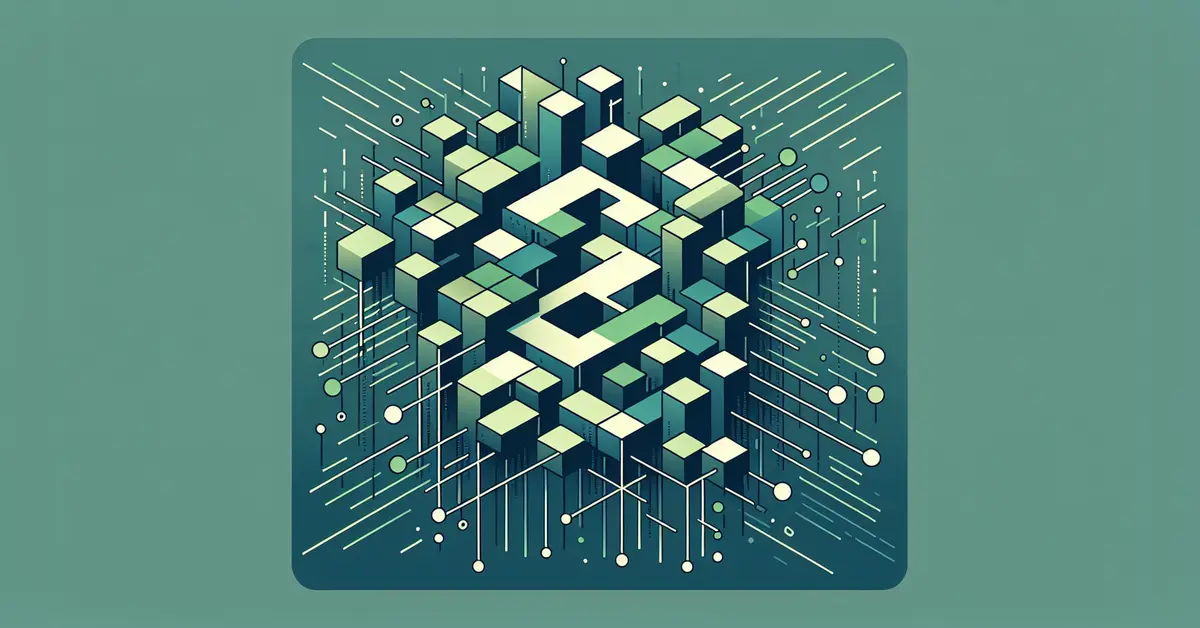



Cryptocurrencies are digital or virtual currencies secured by cryptography, operating on a decentralized network based on blockchain technology. This revolutionary ledger system ensures transparency, immutability, and security, allowing for trustless transactions without the need for traditional intermediaries. As this innovative financial landscape evolves, blockchain stands as the foundational pillar behind the function and growing trust in cryptocurrencies among users globally.
Imagine you're piecing together a communal puzzle. Everyone in the room adds their pieces transparently in the view of others, and once a piece is placed, it cannot be moved. This is akin to how blockchain works; it's a collaborative effort where all transactions (or "puzzle pieces") are added to a public ledger in a sequential, unchangeable chain.
Blockchain stands out from traditional record-keeping by being decentralized. Picture a notebook of records duplicated across a multitude of computers around the world, constantly synchronizing with each other. Unlike a single bank managing its private ledger, blockchain's dispersed nature makes it resilient to control or corruption, fostering trust through collective verification. As transactions are approved by consensus, rather than a central authority, it embodies a revolution in how we maintain and trust our shared ledgers of information and value.
Think of blockchain as a chain of digital "blocks" that contain records of transactions. Each block is connected to all the blocks before and after it. These chains of transactions are visible to everyone, making it nearly impossible to alter a single record without altering the entire chain.
Creating a block is akin to completing a complex puzzle that demands considerable computational power, a process known as "mining." Miners compete to solve this puzzle, and the first one to solve it gets to add a block to the blockchain. This miner is then rewarded with cryptocurrency, like Bitcoin or Ethereum.
But how do we ensure all these blocks are legitimate? This is where consensus algorithms come in. They are the rules and procedures that miners follow to agree on the current state of the blockchain. One popular consensus algorithm is called "Proof of Work," which relies on the idea that the extensive work completed validates the miner's right to add the block to the blockchain.
Through this collaborative competition, bolstered by consensus algorithms, blockchains maintain their integrity and trustworthiness. Everyone in the network agrees on the state of the ledger without needing to trust a single entity; this is the decentralization that gives blockchain its strength.
While Bitcoin introduced blockchain technology to the world, the potential of blockchain extends far beyond cryptocurrencies. This innovative ledger system is being harnessed in numerous industries to bring transparency, efficiency, and security to various processes.
In supply chain management, blockchain enables the tracking of goods from origin to consumer, ensuring authenticity and reducing fraud. The finance sector benefits from faster, cheaper, and more secure transactions. Furthermore, blockchain's immutability is instrumental in securely storing sensitive data, with applications in healthcare for managing patient records, and in voting systems to prevent fraud and uphold democracy.
Smart contracts, self-executing contracts with the terms of the agreement written into code, are also a groundbreaking blockchain development. They allow for trustless agreements that automatically fulfill when conditions are met, with applications in real estate, legal processes, and beyond.
The versatility of blockchain is also reflected in the rapidly growing decentralized finance (DeFi) movement, where financial services operate on public blockchains, allowing for open, permissionless financial systems. Here at Coindive.app, we meticulously track social media channels to unwrap these various blockchain use cases, keeping our audience informed on the latest trends and developments within this versatile technology's vast potential.
Blockchain's robust security measures set it apart as a highly secure means of data storage. At the heart of this security is encryption, which safeguards the data within each block through complex algorithms. This cryptographic protection ensures that transaction data is locked away, only accessible to those with permission.
Furthermore, blockchain's distributed structure amplifies its security. Data is not stored in a central location; instead, it's replicated across a network of nodes. This means to compromise a single record, an attacker would need to alter every copy of the ledger across the entire network simultaneously, a task so computationally expensive that it becomes virtually impossible.
Add to this, the transparency of transactions and the immutable nature of blocks—once added to the blockchain, they cannot be changed or deleted. This, combined with the constant consensus checks from various nodes, provides an additional layer of security, as any discrepancies are quickly detected and dealt with.
Blockchain's integrity is not just theoretical but proven in its decade-plus history of resisting fraud and attacks. This has built a strong reputation for blockchain as a secure foundation for not only cryptocurrencies but for any application requiring guaranteed data fidelity.
The trajectory of blockchain points towards a future where its influence permeates not just finance but nearly every facet of our digital lives. As industries continue to explore decentralized applications, staying informed and educated can empower individuals to be a part of this transformative movement.
Beginners eager to understand and engage with blockchain are encouraged to start with foundational knowledge. Reading whitepapers, following credible blockchain news sources, and utilizing resources like Coindive.app to monitor social media channels and community discussions can provide a wealth of insight into ongoing developments and sentiment.
For hands-on learning, experimenting with blockchain platforms through testnets, where no real money is at stake, or engaging with blockchain-driven projects can offer valuable practical experience. Additionally, participating in blockchain and cryptocurrency forums or attending related webinars and local meetups can also enhance understanding and establish connections within the community.
With a proactive approach to education and community involvement, individuals can prepare for and contribute to the blockchain-powered future, a frontier teeming with opportunities for innovation and growth.